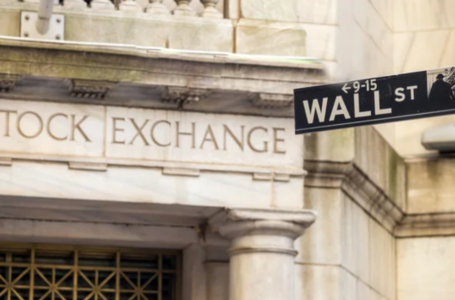Crypto Oversight Legislation Arrives
After 13 years, at least three crashes, dozens of scams, Ponzi schemes and hundreds of billions of dollars made and evaporated, cryptocurrencies finally have the full attention of Congress. The congress whose lawmakers and lobbyists have papered Capitol Hill with proposals on how to regulate the industry.

Who Handles The Regulation?
The latest bipartisan proposal came Wednesday from Sens. Debbie Stabenow, D-Mich., and John Boozman, R-Ark. It would hand the regulatory authority over major cryptocurrencies to the Commodities Futures Trading Commission. Stabenow and Boozman lead the Senate Agriculture Committee, which has authority over CTFC.
However, other members of the Congress have advocated that the authority be given to the SEC.
This year, crypto investors have seen prices plunge and companies crater with fortunes and jobs disappearing overnight. And some firms have been accused by federal regulators of running an illegal securities exchange.
Bitcoin, the largest digital asset, trades at a fraction of its all-time high. The coin is down from more than $68,000 in November 2021 to about $23,000 on Wednesday.
While cryptocurrencies have had crashes before, most recently in 2018, this crash has been broader and more systemic. A major hedge fund filed for bankruptcy earlier this summer, which in turn has caused other cryptocurrency brokers to collapse as well. Some crypto brokers have falsely claimed that their customers’ deposits are backed by deposit insurance, like banks are.
Why Regulate Crypto Now?
Lawmakers, who have run out of patience with the cryptocurrency industry’s attempts to live out an unregulated Libertarian, bank-free world, are now desperate to implement stringent oversight. The industry spent $9 million in 2021 on lobbying fees, according to a report by Public Citizen, a figure that is certain to be higher with all the Congressional proposals this year.
The Stabenow-Boozman Bill
The Stabenow-Boozman bill would be a win for the cryptocurrency industry, which sees the CFTC as a more industry-friendly regulator than the SEC. The CFTC, which had a budget last year of $304 million with roughly 666 employees, is a fraction of the size of the SEC, which had a budget of nearly $2 billion and 4,500 full-time employees.
“(The cryptocurrency industry is) trying to get anyone other than the SEC to regulate them,” said Cory Klippsten, CEO of Swan Bitcoin. While an advocate for Bitcoin, Klippsten is deeply skeptical of much of the broader crypto industry, which has produced a myriad of tokens and other coins that he considers to be nothing more than scams.
Cryptocurrency billionaire Sam Bankman-Fried, who has donated millions of dollars to mostly Democratic-leaning candidates and super PACs, tweeted his support for the Stabenow-Boozman bill.
Boozman, in a call with reporters, said the industry’s preferred choice to regulate crypto is the CFTC.
“They are fairly united on this,” he said.
In a press conference, Stabenow and Boozman both acknowledged that while they have faith that the CFTC is up to the task of regulating cryptocurrencies, the agency would need support. The CFTC already oversees futures contracts for Bitcoin and Ethereum, and the bill attempts to alleviate issues about staffing. They intend to do this by imposing user fees on the crypto industry.
Those funds in turn would fund more robust supervision of the industry by the CFTC. The bill would leave crypto-like products, like non-fungible tokens (NFTs), for the SEC to potentially assert its regulatory authority.
“Obviously if the CTFC is to move aggressively in this area, they are going to need more resources,” Stabenow said.
AllIn1Bitcoins works diligently to offer impartial and trustworthy data on cryptocurrency, finance, trading, and stocks. Nonetheless, we are unable to furnish financial counsel and encourage users to undertake their own inquiries and due diligence.












